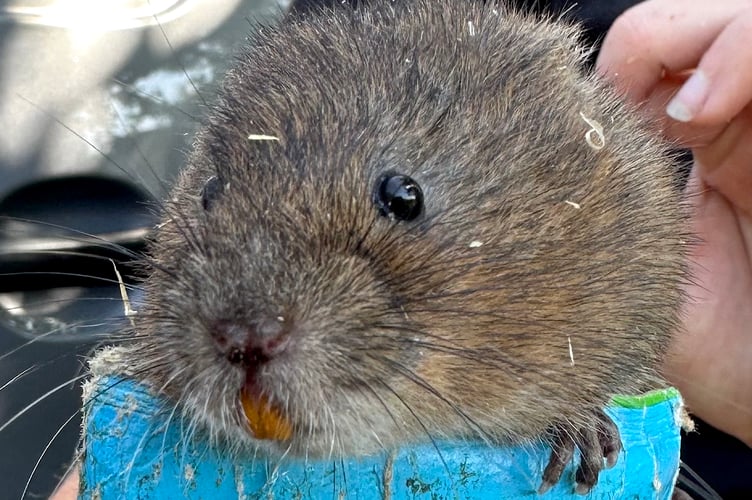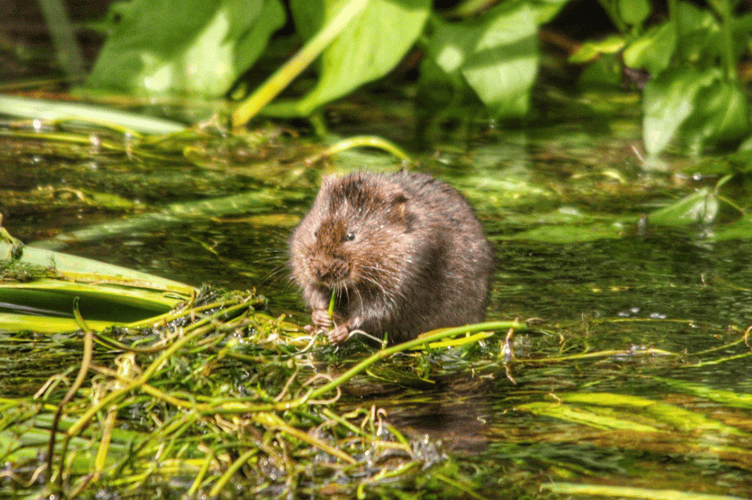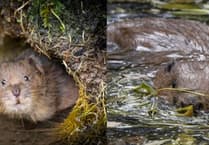A wildlife conservation charity is calling for volunteers across the UK to survey for water voles this spring.
People’s Trust for Endangered Species (PTES) is part of ongoing national efforts to save the endearing yet endangered species before it’s too late.
Volunteers can choose from more than 700 pre-selected riverbank sites, or a new site can be registered if there isn’t a pre-selected option close by.
Emily Luck, PTES water vole officer, said: “Water voles hold the unfortunate title of Britain’s fastest declining mammal and are listed as Endangered on the Red List for Britain’s Mammals, reflecting the seriousness of their decline.
“Since the 1970s populations have plummeted by an alarming 90 per cent because of habitat loss, fragmentation, and predation from non-native American mink.”
“Water voles desperately need our help, but thankfully people in all corners of Britain can do just that by surveying a nearby stream, river, ditch or canal between 15th April – 15th June and telling us what they find. The results show how populations are changing, where water voles remain and where they’ve been lost.
“This is crucial as it allows us to understand how we can help by restoring degraded rivers, improving connectivity between wetlands and controlling invasive American mink.”
‘Vole-unteers’ are asked to visit their chosen site in search of water voles or the tell-tale signs that they’re present. Such as burrows in the riverbank, tic-tac sized droppings, footprints or the characteristic ‘plop’ as they enter the water, and record their findings online at ptes.org/watervoles.


Taking part requires no previous experience, and PTES offers free ID guides and online training to get started.
Last year, 113 sites were surveyed across Britain, with water voles found at 47 of them.
The survey is part of PTES’ ongoing National Water Vole Monitoring Programme which celebrates its 10th anniversary this spring. Over the past decade, more than 2,000 sites have been surveyed by hundreds of passionate volunteers, which is a vital contribution to the ongoing knowledge of the species.
Data gathered over the past ten years has revealed encouraging signs of localised recovery, with small-scale population increases in areas where targeted conservation efforts - such as American mink control and improved habitat connectivity - is underway.
However, these gains are in stark contrast to the clear, steady decline in regions where such efforts have yet to be implemented, so it’s crucial that volunteers survey as many sites as possible.
PTES is also part of the UK Water Vole Steering Group which, alongside the Wildlife Trusts, Natural England, the Environment Agency and others, is working to guide recovery efforts for Britain’s water voles. PTES, in partnership with Natural England, has commissioned a review on water vole conservation translocations, to understand what works best.
CEO Nida Al-Fulaij commented: “We are hopeful that in time, and alongside other organisations and with the help of volunteers, we can together bring water voles back from the brink.”
To become a water ‘vole-unteer’, or to find out more, visit www.ptes.org/watervoles.




